|
In the last 8 years, MPI/Willem Tijssen did extensive research and study to gather all information you'll find in the
"Country Files". This service is available as ONLINE information ONLY, and we urge not to copy any of this
information without prior written permission from MPI/Willem Tijssen.
Enabling us to improve the quality of the content, if you have additonal information, remarks or suggestions,
please share it with us by e-mail.
ALSO VISIT
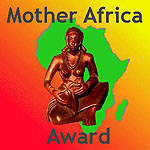
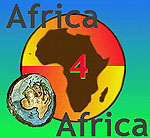

JUST CLICK THE COUNTRY-NAME YOU WANT TO VISIT
To physically visit those countries contact TerraCasta at:
 OR
OR

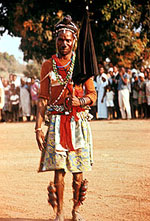
|
|
Angola is the second-largest sub-Saharan producer of oil, following Nigeria.

|
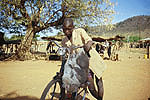
|
|
According to legend, Benin once had an impressive army consisting of the wives of the king. Amazons of Africa. Benin is thought to be the birthplace of voodoo.

|
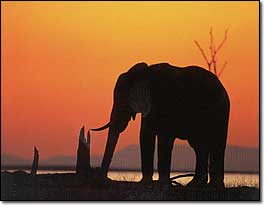
|
|
Botswana has one of the highest standards of education and health in Africa due to a relatively strong economy and some of the world's richest diamond formations.

|
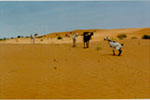
|
|
Burkina Faso is home to Ouagadougou (Wagadugu), which used to play an important role in the trans-Saharan trade and was sought after by rivalling empires in medieval times.
|
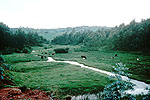
|
|
Coffee counts as 90% of Burundi's export income while large nickel deposits are left unexploited.

|

|
|
Cameroon's name is derived from 'Rio dos Camaroes' meaning 'River of Prawns', the Portuguese name for the Wouri River estuary.
|
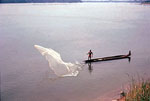
|
|
Several-ton megaliths from 2500 years ago and polished tools of over 8000 years are evidence of a civilisation in this area long before Egypt's great monuments to the north.
|
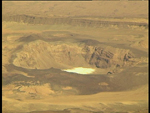
|
|
Chad australopithecine in an early hominid between two hundred thousand and five hundred thousand years old found in the southeast of Chad, along with the teeth of an extinct elephant.
|
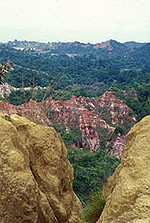
|
|
Annual rainfall in this country whose geography consists of two-thirds rainforest often exceeds 80 inches.
|
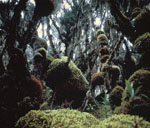
|
|
The Congo River and its tributaries provide about 8000 miles of waterway transportation for the interior, which is sometimes the only way travel.
|
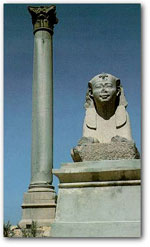
|
|
Egypt has more than 6000 years of recorded history, and its influence has at times extended through the ancient Mediterranean, the Middle East, and Africa as far south as the Congo basin.

|

|
|
Eritrea was part of Askum, a kingdom founded in 1000 B.C.E. whose rule sometimes extended to Egypt. Eritrea seceded from Ethiopia in 1993, making it Africa's newest country.
|
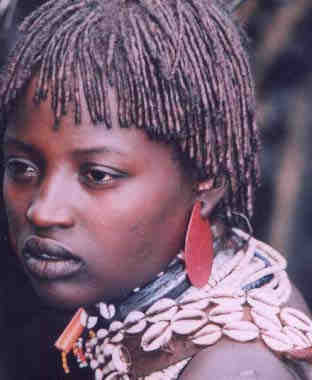
|
|
Ethiopia is the only African country never to have been colonised, although it was occupied by the Italians in the 1930s until 1941. Ethiopia claims 5000 years of self-rule and an indigenous Christian Church, the Coptic Church, going back to the 4th century C.E.

|

|
|
The name 'Gabon' is derived from the Portuguese word, 'gabao', for 'hooded cloak' in reference to the shape of the estuary they found.
|
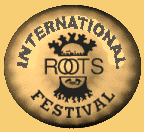
|
|
The Gambia is entirely surrounded by Senegal, except for its short coastline, and is one of Africa's most densely populated countries.
|

|
|
Ghana derived its name from the 10th century Empire of Ghana which was actually located closer to the Sahara than on the coast as the country of Ghana is today.

|
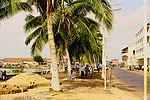
|
|
Guinea-Bissau fought the longest of Africa's wars of independence, from 1973 to 1974, against the Portuguese.
|
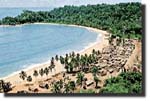
|
|
Cote d'Ivoire has many prominent writers, such as novelists Bernard B Dadie and Ahmdou Kourouma, and playwrights Goffi Jadeau, Amon d'Aby, and Zadi Zaourou.
|

|
|
Kenya is called the 'cradle of humanity' because of archaeological finds in the Rift Valley.

|
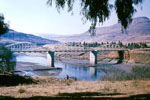
|
|
Lesotho, Vatican City, and the Republic of San Marino are the only independent states in the world completely surrounded by another single country. South Africa, in Lesotho's case.

|
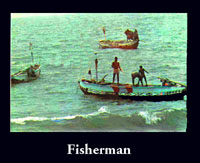
|
|
Liberia is Africa's oldest democracy, becoming a nation in 1847 with the arrival of freed American slaves. The nation did not include peoples native to Liberia, however.
|
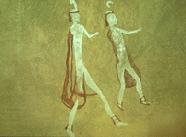
|
|
Libya contains many archaeological artifacts, including some of the best prehistoric rock art in Africa to well-preserved Greek and Roman ruins.
|

|
|
Madagascar is the world's fourth largest island and is home to wildlife found nowhere else in the world, such as the lemur, due to its geographical isolation. Malay-Polynesians are the main population group of Madagascar, arriving on the uninhabited island in the 6th century.

|
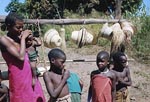
|
|
Malawi is one of the few African countries to have retained one government from independence to the 1990s. Hastings Banda was the country's autocratic president from independence in 1964 to the first free election in 1994. Lake Malawi occupies 20% of the nation's area.

|
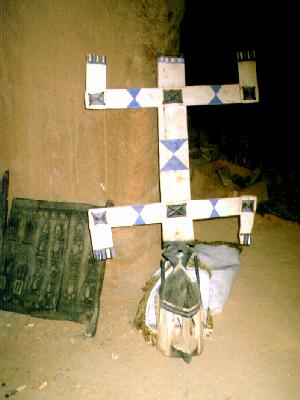
|
|
Mansa Musa, a 14th century Malian emperor, was one of the first sub-Saharan African kings to make the Islamic pilgrimage to Mecca. While passing through Egypt, he distributed so much gold that he single-handedly devalued Egyptian currency for several decades.
|
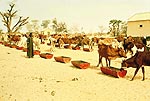
|
|
The endangered Addax antelope lives in the eastern desert of Mauritania.
|
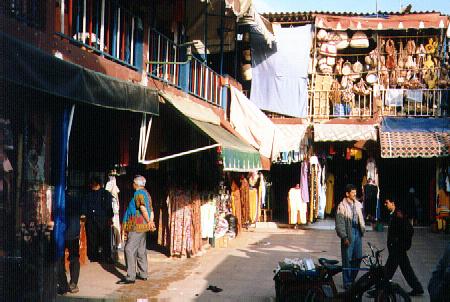
|
|
Morocco contains some of the widest biodiversity in Africa, with its snowy moutains, fertile plains, and desert lands.
|
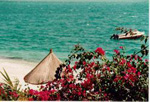
|
|
Mozambique traded with Asia and the Middle East through the Indian Ocean trade network long before the Portuguese arrived.

|

|
|
Penguins can be found on the coast of Namibia, where the Atlantic can be ice-cold.

|
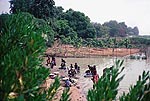
|
|
Niger is pronounced 'nee-zher' because of its French background, not 'ni-jer' like the river's English pronunciation. 20% of Niger's population is nomadic. May is the hottest month, with temperatures ranging from 108F - 113F.
|
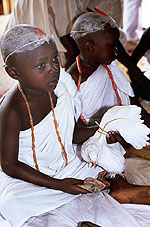
|
|
The area known today as Nigeria has seen many great kingdoms develop and decline, such as 15th century Kanem-Bornu, which rivalled Mali, and the Hausa and Yoruba empires of later eras. Nigeria is the most populous nation in Africa.
|
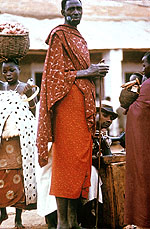
|
|
Rwanda's thick forests are home to some of the dwindling population of the mountain gorillas. The Hutu and Tutsi people of Rwanda, famous for their involvement in the 1994 genocide, actually migrated into Rwanda, replacing the earlier inhabitants of Twa Pygmies.

|
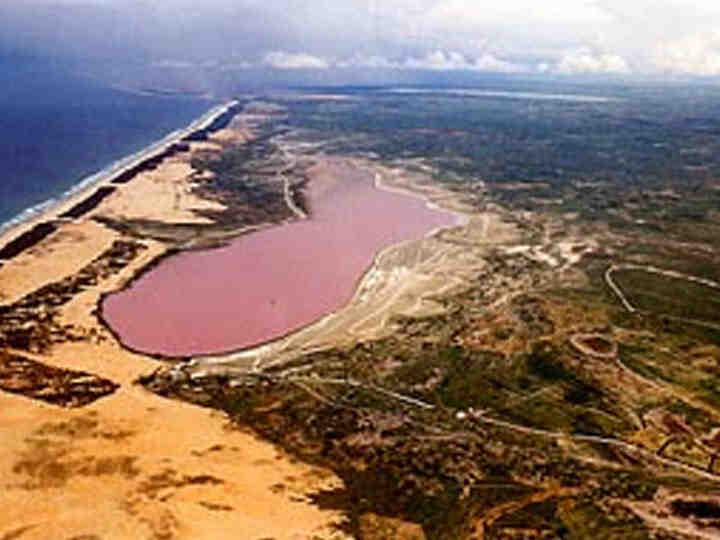
|
|
The American banjo is thought to be related to the kontingo, a lutelike West African musical instrument. Senegal was once part of the lucrative trans-Sahara trade from the 10th to 16th centuries.
|
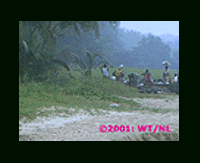
|
|
The name Sierra Leone is based on the Portuguese for 'lion mountains' due to the prominent mountains on Sierra Leone's coast. The Vai script of Sierra Leone is one of the few native African scripts for writing.
|
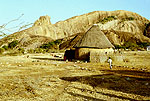
|
|
Most of the Somali people speak the same language, a rarity in African countries which were created indiscriminately by Europeans in 1890 without regards to language or pre-existing borders.
|
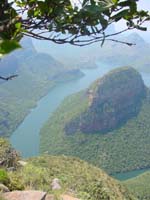
|
|
Humans were in South African grasslands nearly three million years ago.
Bantu tribes, from which most of the sub-saharan central and south african people are descended, had reached South Africa by the 16th century.

|
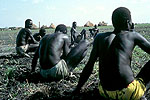
|
|
Sudan is Africa's largest country, including such diverse geography as desert, savannah, and rainforest. The name 'Sudan' comes from the Arabic expression 'bilad as-Sudan', which means 'land of the blacks.'
|
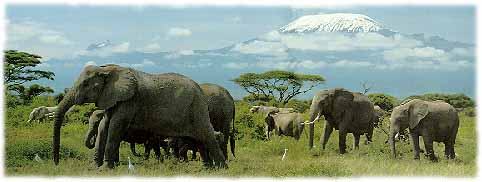
|
|
Lake Tanganyika, one of the largest lakes in Africa (and the world) lies on the western border of Tanzania. The British explorers Stanley and Livingstone met there, resulting in the famous phrase, "Dr Livingstone, I presume."

|
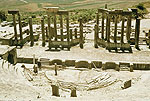
|
|
By the 6th century B.C.E., Carthage, near modern-day Tunis, had become the centre of power in the western mediterranean, rivalling Rome for dominance.
|
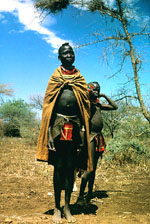
|
|
Winston Churchill once called Uganda "the pearl of Africa."

|
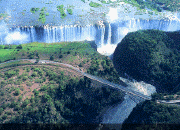
|
|
Vast copper deposits found in Zambia have been worked since the 6th century C.E.
The 'African piano', the kalimba, is among the traditional musical instruments of Zambia. It is a small wooden box with strips of steel attached.

|
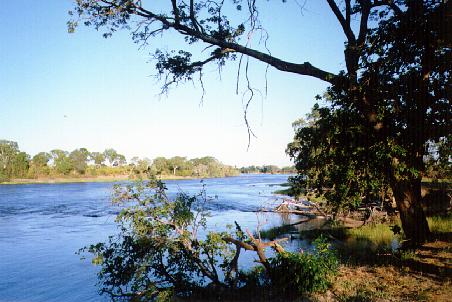
|
|
Zimbabwe has some renowned writers, such as Herbert Chitepo, the epic poet, and Stanlake Samkange and Charlies Mungoshi.
|
|











